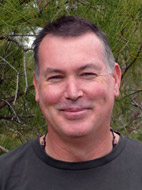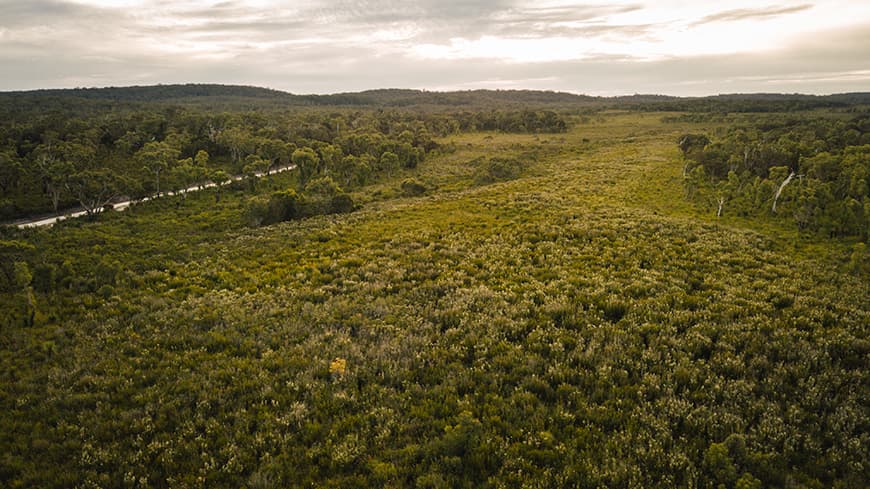 The Federal Government's endangered listing is the first step to saving the peatlands from extinction. Image credit: Holly Winkle
The Federal Government's endangered listing is the first step to saving the peatlands from extinction. Image credit: Holly Winkle
On National Threatened Species Day 2023, the Australian Government declared the Empodisma peatlands of southwestern Australia endangered.
Edith Cowan University (ECU) environmental scientists sought the listing, which came following three years of research and many more years of campaigning by dedicated organisations, to determine how to save the precious wetlands from extinction.
ECU Senior Lecturer Dr Dave Blake said the endangered listing would have a big impact.
"It carries far-reaching implications, as it underscores the urgency and importance of preserving this remarkable ecological community," he said.
Precious peatlands
In Western Australia, they provide important habitat for animals such as the Sunset Frog, many iconic species of native plants such as the Albany Pitcher plant, and other organisms comprising a seasonally waterlogged freshwater, peat-based wetland.
Empodisma, an herbaceous rush-like plant, can be found in the Warren Bioregion from Cape Naturaliste and Albany, the southern subregion of the Jarrah Forest Bioregion, and in high rainfall areas of the Fitzgerald, Northern Jarrah Forest and Perth subregions where conditions are suitable.
"The reason these peatlands are so crucial to the natural environment are they provide important habitat for flora and fauna, regulate water quality and store carbon," Dr Blake said.
"They also hold cultural and spiritual significance to Traditional Owners."
Dr Blake said ECU's research shows these areas are under threat due to changing climate, increased vulnerability to fire and degradation from feral animals.
"Changing rainfall patterns and increasing temperatures affect the hydrological systems maintaining these peat ecosystems — and changing the hydrology of these systems means they are more susceptible to fire and then, once ignited, burn for longer," Dr Blake said.
"Fire then makes these systems accessible to feral pigs which further impact on fauna and flora.
"Ultimately, they cease to be carbon sinks and become significant sources of carbon emissions."
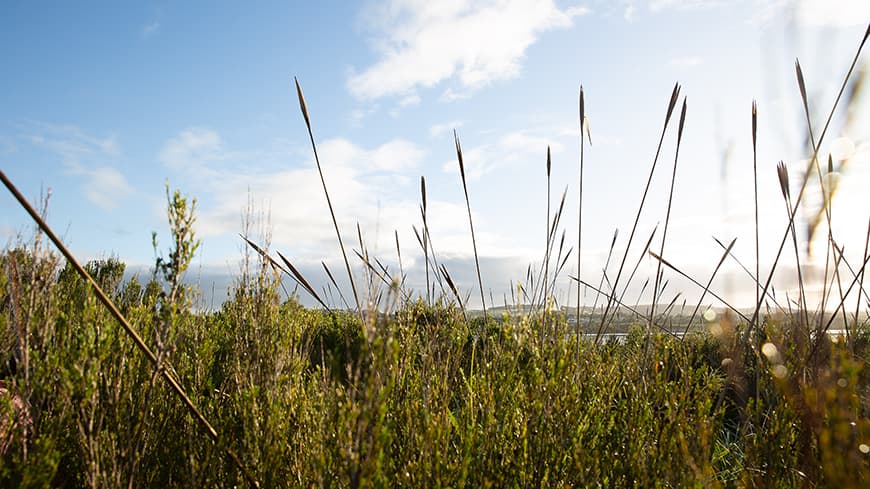 Research shows the peatlands are under threat by climate change, feral animals and fire. Image credit: Holly Winkle
Research shows the peatlands are under threat by climate change, feral animals and fire. Image credit: Holly Winkle
Environmental collaboration
The successful endangered listing was the result of ECU’s efforts, alongside key organisations and individuals.
These include Walpole Nornalup National Parks Association, the Department of Biodiversity, Conservation and Attractions, and the Commonwealth Department for Climate Change, Energy, the Environment, and Water, along with the Commonwealth Threatened Species Scientific Committee.
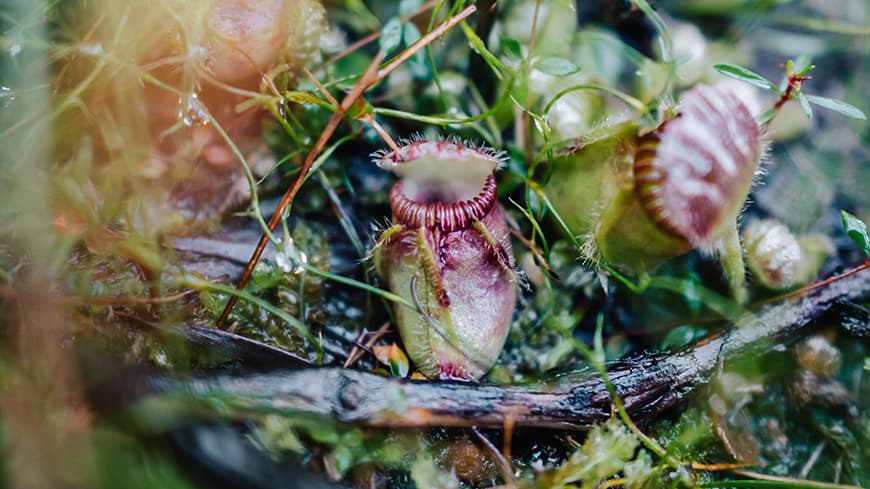 The Albany Pitcher Plant grows throughout the region. Image credit: Holly Winkle
The Albany Pitcher Plant grows throughout the region. Image credit: Holly Winkle
Steps to survival
ECU is engaged in a five-year collaborative research project, Protecting Peatland Ecosystems and Addressing Threats in Southwest Australia (PEAT).
Co-led by the University of Western Australia, it involves 21 interdisciplinary scientists working together, under the guidance of Indigenous elders, to determine how best to protect the natural habitat.
"This listing, in conjunction with the PEAT project, enables us to collect the data we need to inform policy decisions and conservation efforts," Dr Blake said.
"If these systems were to be impacted by fire, it is unlikely they will recover in this era of climate change, they will be lost forever."
"This is truly a crucial ecological system, and action is needed now to retain it for future generations."

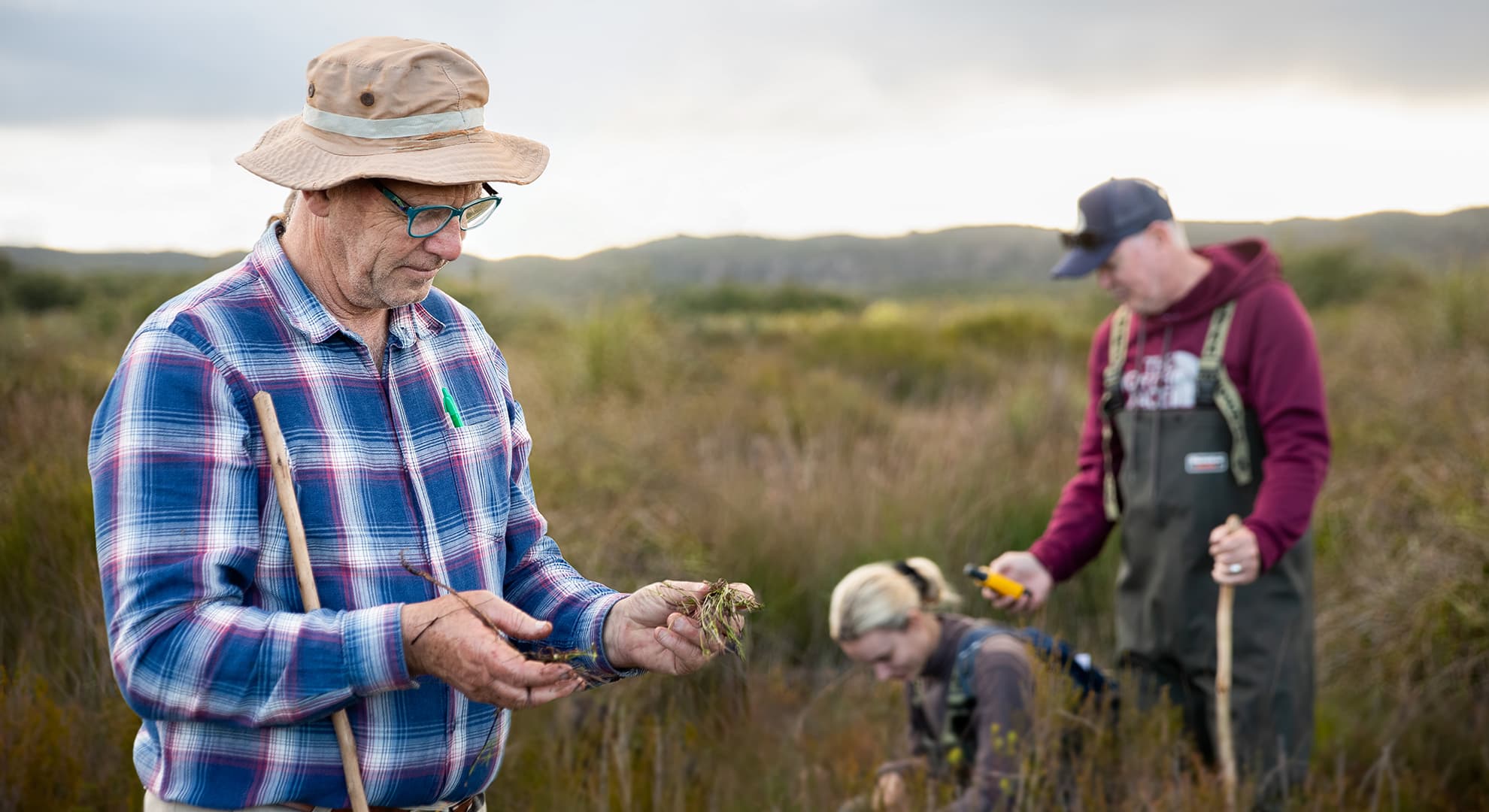 The Federal Government's endangered listing is the first step to saving the peatlands from extinction. Image credit: Holly Winkle
The Federal Government's endangered listing is the first step to saving the peatlands from extinction. Image credit: Holly Winkle
